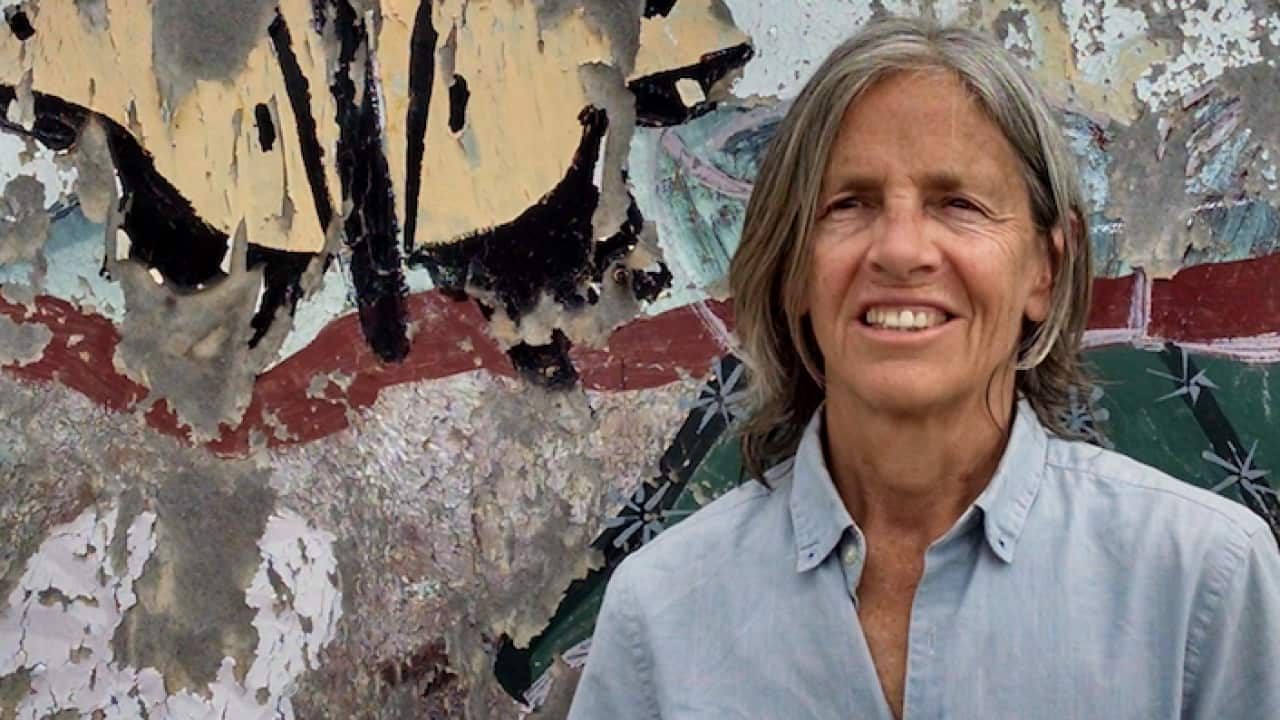In November 1992, Bill Clinton unseated President George H. W. Bush after only one term, but things could have been very different had New York-based punk poet, author, and performer Eileen Myles’ high-profile write-in campaign been successful.
Protesting against Bush’s assertion that “political correctness,” was a threat to American democracy, Myles noted in the letter announcing their candidacy that Bush wanted to silence, “victims of bias crimes: women, homosexuals, ethnic and racial minorities.”
“I think it’s the worst job in the world, President of the United States,” says Myles, calling it a thankless role.
Speaking over the phone from New York ahead of their appearances at the and Melbourne’s Wheeler Centre event, the author of Chelsea Girls, I Must Be Living Twice and Afterglow (A Dog Memoir) continues: “At the same time, any one of us could think in very simple and clear ways about what we would want the world to be like, and right away we would get rid of gendered bathrooms. Right away we would get rid of any attempts to control women’s bodies. Right away we would reverse defence spending. Right away there would be a department of culture in America.”
Trump, they muse, is the apotheosis of a nation that does not value culture at the head of government. “America is a comic nation, not a tragic one. If we are going down, we are going down with a brick buffoon at the helm, and there’s something sadly perfect about it, considering all the heroic triumphalism that’s such a part of the American gestalt, while seeing this country based in slavery and genocide and not telling that as part of our history, pledging allegiance to a flag. You know, I love my country and I find it very obscene at the same time. We’re a bit of virus spreading all over the world. It’s a weird moment.”
A boundlessly enthusiastic wit, utterly captivating as they dance deftly from politics to pet ownership, gender and sexuality identity to making movies, for what it’s worth, if I could, I would vote for Myles.
Born in 1949 and raised Catholic in a working class Boston family, it seemed a very parochial existence compared to the Los Angeles and New York they saw on TV. Particularly drawn to Gilligan’s Island star Bob Denver’s portrayal of a beatnik in Dobie Gillis, the weird New York of Warhol was magnetic. Making the move in 1974, the endlessly creative East Village offered a road map.
“I mean, the people around me were actually doing things,” Myles says. “They weren’t talking about being in a band or wanting to be a poet, they were poets and they got themselves in a band… We were like the younger people around [Allen] Ginsberg and John Ashbery and Patti Smith, though she was always considered more of a performer than a poet, but she was still ours. She came out of the poetry world, you know.”
Myles insists they haven’t necessarily lived a radical life, “it’s just that when I’ve had a radical experience, I’ve written about it.” Autobiographical novel Chelsea Girls captures a visceral sense of these heady days. “I’m writing about a world that you know, but incidentally the narrator is female, so it’s really different in a certain way. So I kind of feel like I extracted male freedom and put it in a female place, and then discovered that the place wound up being entirely different because of that.”
Heartened by progress in queer equality, though wondering if perhaps things weren’t more down and dirty in their day, Myles acknowledges a city like New York offers more freedom than some corners of America. “I think class is always the wild card, because there are always kids living in places where the rules are different and harsher than we even know, but what I gather is that with the youngest people, queer is less of an issue, trans is less of an issue, fluid just is the way.”
Personally identifying as a third-wave lesbian, “because that’s where I came out and found myself,” Myles recalls knowing several butch lesbians who ultimately transitioned. It was a conversation Myles was having with a therapist during the 80s. “I mean, I feel like I am very trans-identified. To some extent I felt I did, in fact, identify as a man in a woman’s body. I’m starting to think that trans feelings are really at the root of homosexuality.”
Conservative flapping over bathrooms is ridiculous, Myles adds. “It seems like we are sort of talking about public domination in a way, and then we have these strange little cubicles that somehow make everybody safe. Like somehow in the western world women are supposed to be free, but there’s this strange protectionist thing when it comes to our bodies, and I think that’s the last vestige of something.”
The Kafka-like Afterglow, a tribute to their late dog Rosie, allowed Myles to explore a new way of writing. “Part of the pleasure of writing about an animal was to de-centre the human thing, you know, and I think to have an animal companion is to really feel that, and to feel a queerness about it too. You are not loving something that’s like you.”
A cat owner myself, I tell Myles I always respond, when asked if I am a cat or dog person, that I am an animal person. “What a good answer, I really like that. I often say I’m a cat person pretending to be a dog person.”
Identity is fluid, after all. “Exactly, exactly.”
Eileen Myles will be a guest of the (April 30-May 6) and at Melbourne’s Wheeler Centre (May 2-22). Click on the links for more info or to book tickets.


